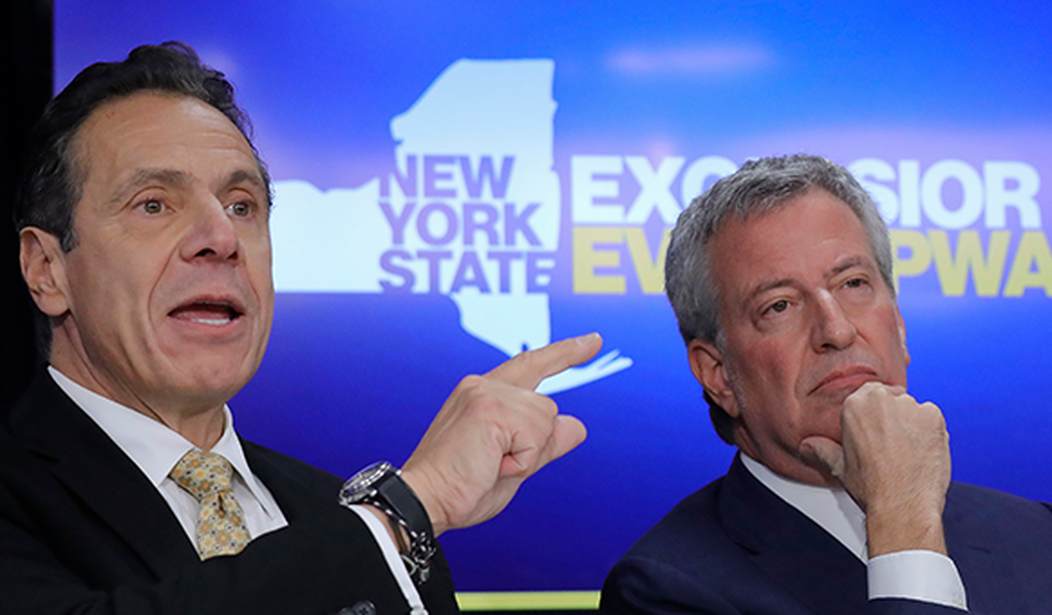When the Wuhan coronavirus began to surge in the spring, New York City placed a number of freezers inside trucks to house those who died from the virus. Eight months later, roughly 650 bodies are still in the makeshift freezers, the Wall Street Journal reported.
Around 230 deceased people are in the makeshift morgues because their families cannot be contacted. Either their next-of-kins are outdated or flat out wrong. One of the main issues, however, is finances. Most families can't afford the $9,000 price tag that an average funeral in the Big Apple costs. The same goes for a cremation that generally costs around $6,500. The city has since provided families with $1,700 in burial assistance. It previously was $900.
Bodies that are generally unclaimed are buried on Hart Island, which is located on City Island near the Bronx. Mayor Bill de Blasio put a halt to massive burials on the island earlier this year, even though New Yorkers have a right to be buried there free of charge.
To make matters even worse, some family members didn't find out that a loved one had passed away for weeks or months. The reason? The medical examiner's office, which is made up of 15 people, was bombarded. They're used to handling 20 deaths a day. With the Wuhan coronavirus, that number ballooned to 200 cases a day in the spring. That meant it took longer to identify bodies and contact families.
The city health department floated 100 staff members to help the medical examiner's office. They were tasked with answering the office's phone calls, which went from 30 to 400 a day to well over 1,000. In addition to helping the family member, the staff also acted as a guidance counselor. Callers were frequently under distress, either recovering from the virus themselves or dealing with a job loss as a direct impact because of the pandemic.
Recommended
"This was one of the few times where it routinely felt appropriate to ask people to remember to take care of themselves, to remember to be kind to themselves," Aden Naka, deputy director of forensic investigations, told the Journal. "So many people just needed us to hear their stories, to listen to their experiences, to be a friendly voice on the other end of the phone, in a way that I have not experienced before."

























Join the conversation as a VIP Member